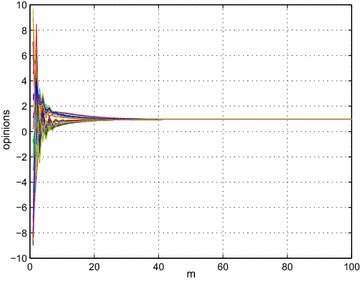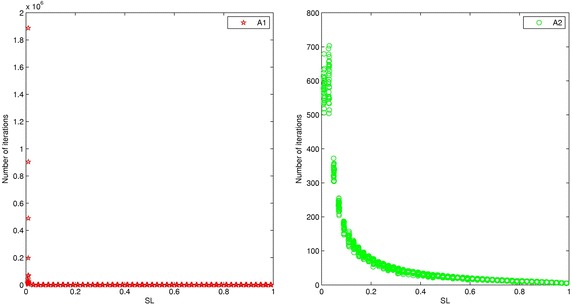Why continuous discussion can promote the consensus of opinions?
Q1 Mathematics
Computational Social Networks
Pub Date : 2016-01-01
Epub Date: 2016-11-21
DOI:10.1186/s40649-016-0035-x
引用次数: 1
Abstract
Why group opinions tend to be converged through continued communication, discussion and interactions? Under the framework of the social influence network model, we rigorously prove that the group consensus is almost surely within finite steps. This is a quite certain result, and reflects the real-world common phenomenon. In addition, we give a convergence time lower bound. Although our explanations are purely based on mathematic deduction, it shows that the latent social influence structure is the key factor for the persistence of disagreement and formation of opinions convergence or consensus in the real world social system.


为什么持续的讨论可以促进意见的一致?
为什么通过持续的沟通、讨论和互动,群体的意见倾向于趋同?在社会影响网络模型的框架下,我们严格证明了群体共识在有限步内几乎肯定存在。这是一个相当确定的结果,反映了现实世界的普遍现象。此外,给出了收敛时间的下界。虽然我们的解释纯粹是基于数学推导,但它表明,潜在的社会影响结构是现实世界社会系统中分歧持续存在并形成意见趋同或共识的关键因素。
本文章由计算机程序翻译,如有差异,请以英文原文为准。
求助全文
约1分钟内获得全文
求助全文
来源期刊

Computational Social Networks
Mathematics-Modeling and Simulation
自引率
0.00%
发文量
0
审稿时长
13 weeks
期刊介绍:
Computational Social Networks showcases refereed papers dealing with all mathematical, computational and applied aspects of social computing. The objective of this journal is to advance and promote the theoretical foundation, mathematical aspects, and applications of social computing. Submissions are welcome which focus on common principles, algorithms and tools that govern network structures/topologies, network functionalities, security and privacy, network behaviors, information diffusions and influence, social recommendation systems which are applicable to all types of social networks and social media. Topics include (but are not limited to) the following: -Social network design and architecture -Mathematical modeling and analysis -Real-world complex networks -Information retrieval in social contexts, political analysts -Network structure analysis -Network dynamics optimization -Complex network robustness and vulnerability -Information diffusion models and analysis -Security and privacy -Searching in complex networks -Efficient algorithms -Network behaviors -Trust and reputation -Social Influence -Social Recommendation -Social media analysis -Big data analysis on online social networks This journal publishes rigorously refereed papers dealing with all mathematical, computational and applied aspects of social computing. The journal also includes reviews of appropriate books as special issues on hot topics.
 求助内容:
求助内容: 应助结果提醒方式:
应助结果提醒方式:


